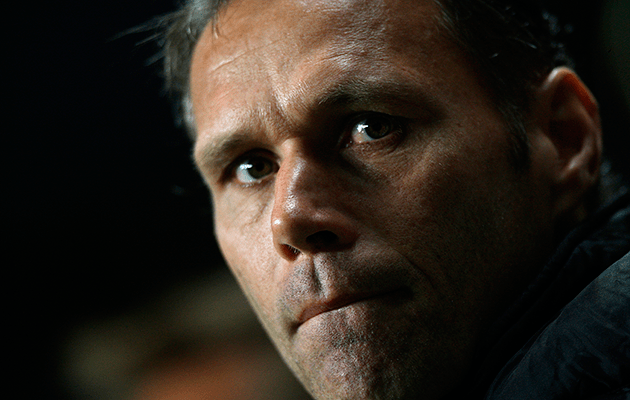Marco van Basten, Fifa’s chief officer for technical development, has confirmed that the 2026 World Cup could feature penalty shootouts to determine a winner in drawn matches.
Fifa president Gianni Infantino last week received approval from the Fifa Council for his plan to expand the World Cup to 48 teams from 2026, and the group stage is set to involve 16 groups of three teams.
However, three-team groups look likely to increase the chances of sides playing for mutually beneficial draws in the final group game, as well as the increased possibility that teams will finish level at the conclusion of the group. Penalty shootouts are regarded as a relatively convenient and fair way of separating teams with identical records.
“Shootouts could indeed be an option for tournaments with groups of three in which you play against two opponents,” Van Basten told Sport Bild.
The two teams playing in the final group game could contrive a result whereby both ensure they will progress at the expense of the third team.
“It can get pretty tight. If one team for instance draws one match 0-0 and wins the other 1-0, there’s a high risk that all three teams are level on points and goals in the end,” Van Basten said.
FIFA may also reintroduce the concept of the shootout first adopted by the NASL in the 1970s, whereby a player will have a number of seconds to score from 25 metres out.
“The keeper is not allowed to leave the box,” Van Basten added. “Once he parries the ball, it’s over.
“If you have those shootouts after 90 minutes and one team scores five times, another one four times and the third only three times, it’s much easier to determine the winner of a group.
“Shootouts are spectacular for the viewers, and they are interesting for the players,” Van Basten said. “A [traditional] penalty is over for him after a second, but he has several options in a [NASL-style] shootout. He can dribble, shoot, wait how the goalie reacts.”
Van Basten said FIFA would test this and other new ideas over the years leading up to the 2026 tournament, and there may be other changes coming too
Those changes could include a “period of effective playing time” toward the end of every match to stop teams wasting time, and a “time penalty” – or sin bin – instead of yellow cards.
“We are aware of the problem of playing for time,” he added. “The spectators want to see action, goals, tackles. The longer a substitution or free kicks or the treatment of an injured player takes, the more playing time is lost. We have to watch that carefully.
“That’s why we’re also discussing turning the final 10 minutes into a period of ‘effective playing time.’ In every second the ball has to roll. Because if a team leads they will try everything to waste time, for instance through substitutions.”
On sin bins, he said: “You don’t get a lot out of a yellow card as the team on the attack. One idea is to replace yellow cards with a time penalty of five or 10 minutes. That’s discouraging. It’s more difficult to play with 10 against 11, not to mention eight or nine versus 11.”






